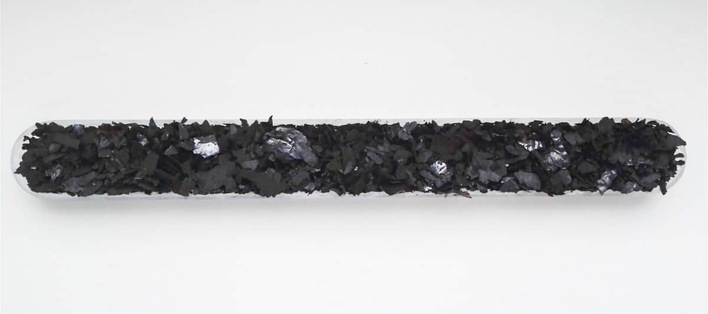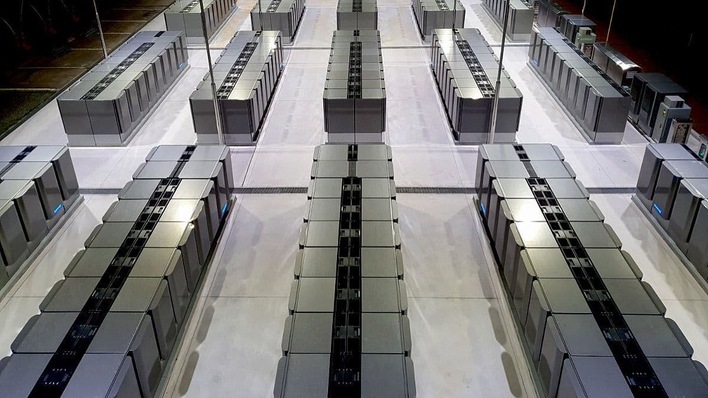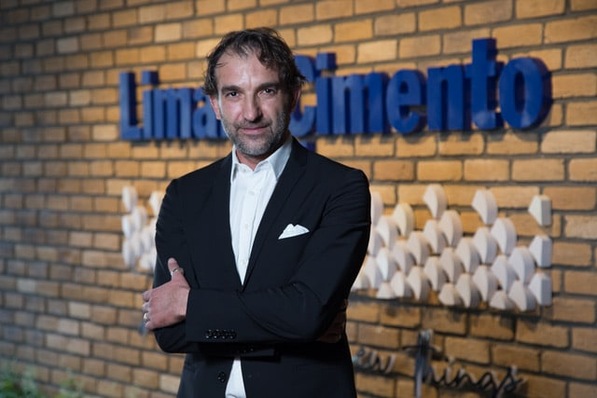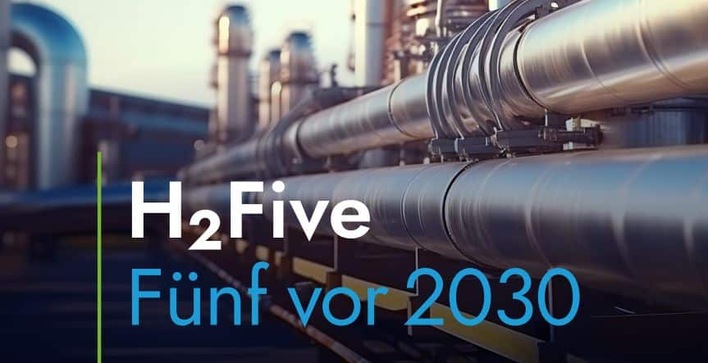H2-international: Mr. Lazzaroni, you have just come from the German-Italian Energy Forum, an initiative by the Italian Chamber of Commerce for Germany (ITKAM). What impressions did you get from the forum in Frankfurt am Main?
Lazzaroni: Regarding the event, I had a very good impression. It represented an important opportunity to make connections with those involved in the hydrogen value chain in the German market.
Among other things, you yourself discussed the potential of green hydrogen decarbonizing European industry from the podium. What were your essential points from this exchange?
There is a lot of potential in the German-Italian relationship: On the one hand, we need to address the transportation infrastructure for hydrogen that has yet to be connected with the SouthH2 Corridor project. This is a 3,300-km hydrogen pipeline connecting North Africa, Italy, Austria, and Germany. This aims to supply competitive renewable green hydrogen to clusters of demand within Europe. Italy plays a crucial role in this corridor. The Italian H2 Backbone is composed of around 2,300 km of pipelines and several hundred megawatts of compressor stations, expected to become dedicated hydrogen assets by 2030.
On the other hand, the technology behind the production of hydrogen and its use in industry open up a lot of opportunities for European collaboration. UFI Hydrogen will play a major role in this, thanks to its new production plant in Serravalle, Trentino, in the center of one of the important hydrogen valleys in Italy. UFI Hydrogen is also active in Tunisia, collaborating on the Mattei Plan for a green hydrogen pilot plant, which will transport hydrogen to Europe via the SouthH2 Corridor.
H2-international: Your parent company has expanded significantly in recent years with 22 locations worldwide and over 4,400 employees. Could you please briefly specify what the UFI Group does?
Founded in 1971, UFI Filters Group is a global leader in filtration technology and thermal management. It serves a wide range of sectors – from automotive, aerospace and marine through to specialized industrial and customized hydraulic applications. Renowned for its innovation, UFI’s products and know-how are found in all kinds of vehicles – from top F1 teams, including Ferrari, through to the European ExoMars spacecraft. For seven years now, UFI Group’s innovative power has also been focused on the hydrogen business. It is the big effort and wish of our chairman and owner, Giorgio Girondi, to play an active role in the transformation of the economy. The research and development capacity at UFI has led to 320 patents being registered by the group, and this path of innovation forms the basis of the patent strategy being used by the hydrogen business.
Your company UFI Hydrogen is a subsidiary of the UFI Group and was only founded in 2023. What do you offer that your parent company doesn’t already provide?
As you know, green hydrogen is emerging as one of the most promising solutions to the challenges of decarbonisation. UFI Hydrogen is at the forefront of this revolution, driving innovation through the development of next-generation catalystcoated membranes with four types of application: the production of green hydrogen through water electrolysis, zero-emission electricity production using fuel cells, the production of e-fuel through the transformation of CO2, and electrochemical compressors of green hydrogen. Our mission is to industrialise and develop advanced solutions based on Membrane Electrode Assemblies (MEA) that are applied in several key sectors of the green hydrogen transition.
Among other things, you have a patented membrane technology. Is that correct?
Yes, our flagship product is membranes for water electrolysis coated with platinum and also with iridium catalysts, one of the most expensive materials in the world (MEA UFI.Iridium™). These membranes enable efficient separation of hydrogen from oxygen and represent a key solution for large-scale production of green hydrogen. UFI Hydrogen will introduce this innovation to the market as early as the beginning of 2025, with a high-performance technology solution, aiming to significantly lower costs. This will make the technology more affordable and sustainable for industrial-scale adoption. The second product line, based on fuel cell membranes (MEA UFI.Platinum™), enables the conversion of green hydrogen into electricity via fuel cells, offering indispensable solutions for zero-emission mobility and also for stationary applications. UFI Hydrogen aims to bring this technology to market by 2026/2027, with the goal of developing a green, PFAS-free MEA membrane, free of fluoropolymers and therefore totally environmentally friendly.
The MEA UFI membranes can also be used for the electrolysis of CO₂ to produce e-fuels, with a great strategic impact in the transport market (automotive, aviation and shipping), as well as for electrochemical compressors. The latter open up a whole new market due to their ability to compress gas without the use of moving mechanical parts. This reduces operating costs and improves energy efficiency, eliminating wear and maintenance problems typical of traditional compressors. Being able to reach high pressures, these compressors are crucial for the storage and distribution of green hydrogen – two key processes to ensure its adoption in both industrial and transportation applications.
Why have you only now entered the H2 business?
Seven years of intense research & development, conducted since 2017, were needed to come out with something revolutionary which we believe we have to offer now in order to industrialize and transform hydrogen production. The hydrogen economy needs to develop at greater speed and we do have the technology to make the production and storage affordable, to enable competitive prices in comparison with competitors in our market, as well as other energy sources.
UFI Hydrogen is the only Italian company to receive funding from the Commission as part of the European Hy2Move project within the IPCEI scheme. What is this project about?
The goal of this project is to reduce emissions in the mobility and transport sectors by 90 percent by 2050, in line with the European Green Deal. UFI Hydrogen is promoted in the IPCEI Hy2Move project for the development of innovative MEAs (Membrane Electrode Assembly) for fuel cells, intended for sectors such as road transport, maritime, aviation and stationary applications.
I hear that your chairman and owner of the UFI Group, Giorgio Girondi, has close contact with the Italian government and even advises EU parliamentarians. Can you be more specific about the role he plays?
Mr. Girondi is surely one of the most experienced business developers in our country. In this respect, he has been appointed advisor to the Italian delegation in the European Parliament for Italy, Europe and China. This is an honor and obligation in one. With 42 years’ experience in expanding and innovating the UFI Group worldwide from a small 2 million Euro business to an enterprise with a turnover of almost 600 million Euro, he is certainly a valuable political advisor. His expertise and insights from UFI Group’s production in China are especially interesting in regard to the process of strengthening the relationship between Italy, Europe and China in promoting valuable industrial investments and joint growth opportunities.
For UFI Group, China is a very important market. Currently it has seven production sites in China with 1,800 employees and the market is responsible for a third of the group`s turnover. In May, the group established UFI GREEN in Jiaxing, the first industrial site fully dedicated to green technologies in China. Within this site, UFI Hydrogen will also occupy 5,000 square meters as it accelerates the development of advanced solutions for the production and use of green hydrogen in China. To support this expansion, UFI Hydrogen has signed a memorandum of understanding with Sinopec, China’s largest oil and petrochemical company, to explore new solutions in green hydrogen and promote its integration into the Chinese energy market.
You obviously assume that the market will grow rapidly. In Italy, you are also currently building a new production facility near Verona. What will be produced there?
That’s right. We are currently in the process of moving into the new premises in Serravalle, which is situated between Trento and Verona, in the Province of Trento. The new 14,000-square-meter industrial facility – 6,000 square metres of which will be indoors – will initially employ around 30 people including researchers, technicians and production staff. In January 2025, production will begin using our MEA-technology the aforementioned membranes for water electrolysis and the fuel cell membranes. Over the next four years, the company expects an investment of around 50 million Euro and the creation of around 100 new jobs for the area.
Are you already seeing a growing demand for your membranes or is the demand still low?
Yes, there is definitely a growing demand. We are now in the phase of entering the market with our high-performance technology that is especially efficient in allowing very high hydrogen production with lower energy consumption. Several international customers have already been in contact with us to assess purchasing our MEA technology. We will start industrialised production in our new plant from January 2025 onwards.
Recently we read that Giorgio Girondi is looking for partners in the H2 sector, and possibly also intends to take UFI Hydrogen public? Is this true, and if so, what is the current situation?
We are looking for operational and strategic partners, that’s right. Going public would be a possible further step in our journey in the future. Right now, 100 per cent of the shares are inhouse. Half of UFI Hydrogen belongs to UFI Filters Group and the other half to the Giorgio Girondi Holding Group. The legal entity is an S.p.A., this gives us sufficient leeway to take on external investors if the conditions are right for this opportunity.
Right now, we are looking for partners in Germany, our core market within Europe, to further develop and also customise our technology. To shape a future European H2 economy, we will have to gather all our innovative power together, as we already do in the IPCEI project, where in Germany (this might be interesting for your readers) we cooperate among others with BMW, Airbus and the family business Neumann & Esser. Additionally, we already have ongoing strategic relations with all the German major hydrogen stakeholders.
For months, German commercial enterprises have been complaining about a decline in demand and a lack of planning certainty. Are you affected by this, and what is the mood like for you in Italy?
Italy’s economy has been lucky not to shrink like Germany’s, but growth has also slowed down. Despite this, we are very optimistic for the hydrogen industry, as the hydrogen supply chain is supported by the market. In Italy, the Italian government has just published the national hydrogen strategy, which demonstrates Italy’s conviction in supporting the key role of the hydrogen sector in the country’s decarbonization and energy security, and also provides a clear strategic direction needed to reassure investors.
Interview: Sven Geitmann









